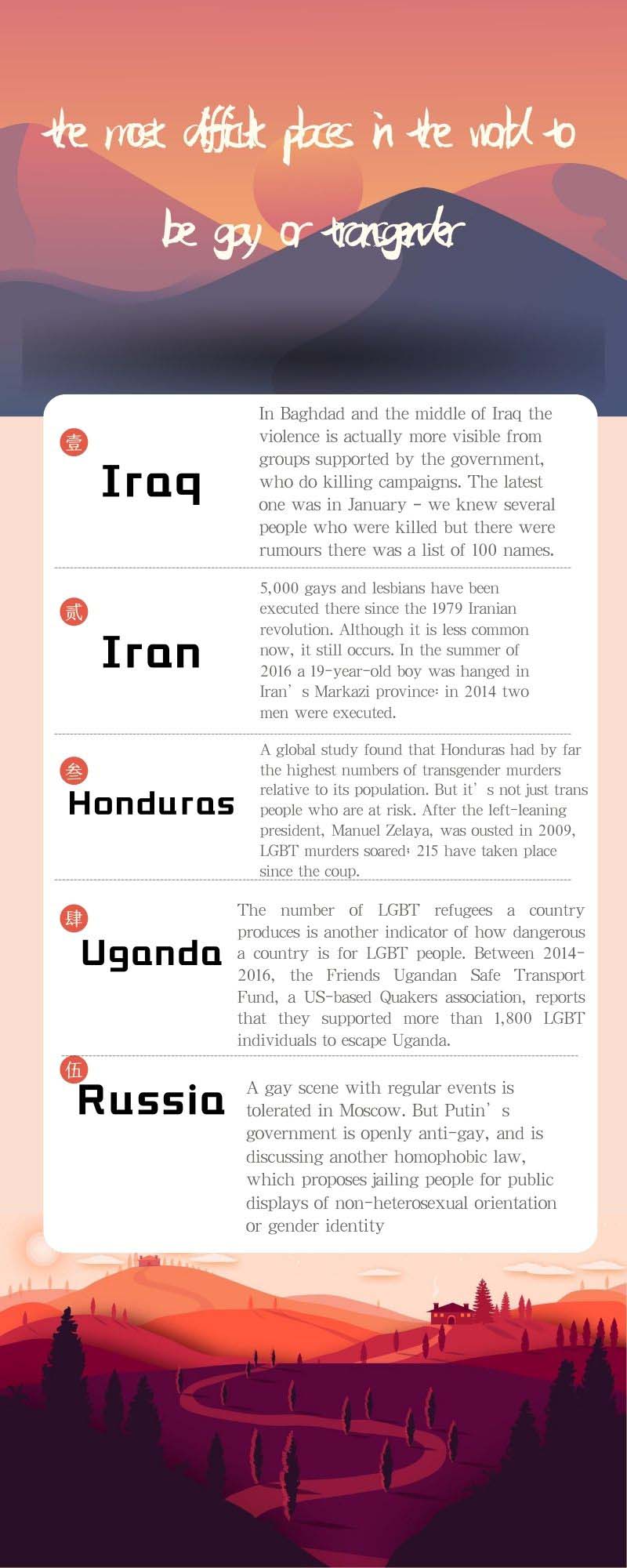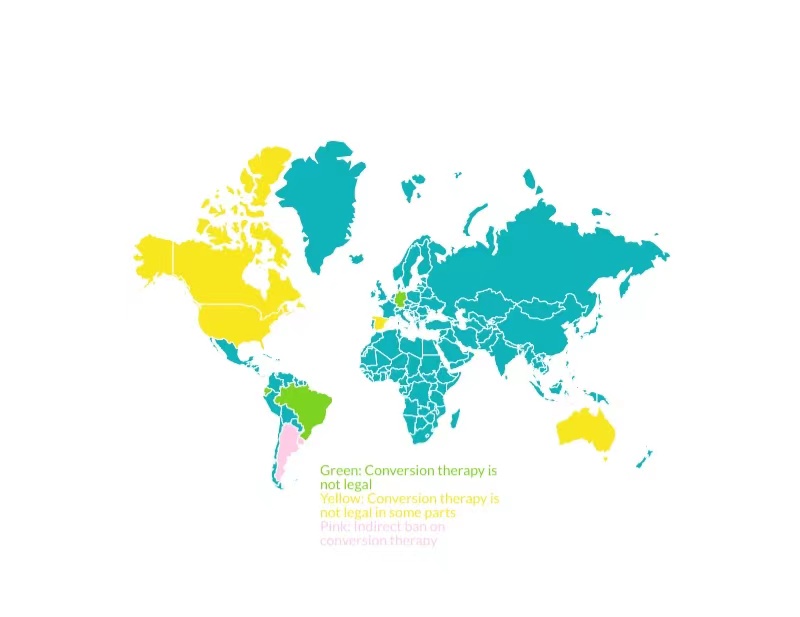Conversion therapy — the pseudo-scientific method used to ‘cure’ homosexuality. It goes back more than century but how did it develop and is it legal in the UK?
In 1899, A German psychiatrist named Albert von Schrenck-Notzing gave electric shock treatment to an audience at a conference and proposed a hypothesis that he could turn homosexuality to heterosexuality.
Albert claims that he is able to turn a gay man into straight through 45 hypnosis sessions and a visit to brothel.
Albert unknowingly kicked off a kind of pseudo-scientific method designed to suppress LGBTQ sexual orientation and require them to obey the mainstream sexual orientation, lately known as conversion therapy.
Conversion therapy attempts to change people’s gender identity and sexuality. It is also known as “reparative therapy” or “aversive therapy”, according to NHS England.

The history of change in sexuality and CAN SEXUALITY BE CHANGED?
In the late 19th and early 20th centuries, Eugen Steinach, an Austrian psychiatrist , studied European sex hormones and how it works on mammals. He conducted experiments on mice by removing their testicles and implanting them in other parts of the body. He then drew a conclusion that the testicular stromal cells produce male hormones.
Steinach Rejuvenation Procedure was therefore born, which he claims can rejuvenate men by increasing the production of sex hormones.
For Eugen Steinach, homosexuality has its roots in the male testicles. This theory led to testicular transplantation experiments in the 1920s, during which gay men were castrated and then replaced with “heterosexual” testicles.
By the 1920s, Steinach’s rejuvenation technique became popular in Europe, and Steinach began to conduct clinical studies on its success. Steinach found that the results varied. Many men have aroused sexual desire, but some reported no influence or negative results.
Steinach’s results made researchers and doctors doubt the procedure and its underlying theory. Some scientists said that the positive results may be related to self-suggestion or placebo effects. Others claimed that the science behind the procedure was inaccurate, but still stated that the procedure has some medical benefits. However, despite the controversy, by the 1920s, rejuvenation procedures were common, according to The Embryo Project Encyclopedia.
Stephen’s research results fire up a controversial debate back then, and finally after the end of his scientific research career in 1938, there were no results.
In the last two decades of the nineteenth century, the medical and psychiatric circles classified same-sex behaviour as a clear and relatively stable sexual orientation.
In 1992, the World Health Organization changed its classification of homosexuality as a mental illness to homosexuality with self-dystonia. The British government followed suit in 1994.
However, in many countries today, homosexuality is still not allowed.

The practice of sexuality change
Today, amongst all cisgender people who have taken part in the survey, according to National LGBT survey, 5% of bisexuals are more likely to have received conversion therapy, and 10% for asexuals. Men are more likely to have received conversion therapy than women, and the data are 8% and 6% respectively.
The form of conversion therapy can range from electroconvulsive shock to lobotomies. Other “treatments” include electric shocks through electrodes directly implanted in the brain. Robert Galbraith Heath, a psychiatrist from New Orleans, was a pioneer in this technology.
He used this form of brain stimulation, as well as hiring prostitutes and heterosexual pornography to averse gay people’s sexuality. However, although Heath claimed that he could truly change the character of gay men, his work has since been challenged and criticized for its methodology, according to LGBT history magazine.
NHS England and other professional institutions have warned that all types of conversion therapy are “immoral and potentially harmful.”
Conversion therapy attempts to prevent or suppress someone from becoming gay or living in a gender different from the gender recorded at birth.
Conversion therapy can be carried out by licensed professionals, unlicensed departments or life coaches; It can be conducted face to face in the office, or in groups at meetings.
One of the most common technologies today is “talk therapy”, where practitioners try to “treat” a person’s sexual orientation or gender identity. They assume that a person’s sexuality or gender identity is the result of abuse and childhood trauma, or the result of the person’s environment and upbringing. There is no recognized training for mental health professionals on how to try to change a person’s sexual orientation or gender. This also means that there is no ethical standard to do so, according to NHS England.
According to human rights campaign, people who receive conversion therapy are often vulnerable, and conversion therapy usually has a serious impact on them, such as depression, anxiety, drug abuse, homelessness, suicide, etc.
Khakan Qureshi Esq, a LGBT Muslim activist who have won British Empire Medal and Points of Light Awards, claims that no one’s preference should be changed by external forces.
Khakan has been in his relationship with his husband for 30 years and he enjoys the feeling of their interfaith, intergenerational and interracial relationship.
“I think people should have that freedom to do what they want as long as it’s consensual, they’re responsible, they understand what’s coming through, they also understand the implications and consequences, they’re identifying or navigating their lives.”
“I think as long as they’re happy within themselves, and they’re not harming anybody else. They should just be who they want to be, life is a learning curve and you can’t please everybody around you to be who you want to be. You’ve got to look within yourself. You’ve got to be able to manage, who you are where you’re at, what you want.”
Khakan Qureshi Esq still hold hopes for acceptance towards gay community to get better.
“I look back at my age and, you know, I’m as old as Stonewall practically. And I’m thinking, when I met my partner which was 30 years ago. I never thought that in our lifetime, I would see, same sex marriage, or people having the rights to adopt or foster or have surrogate children, and for that matter, I never thought that I would see trans visibility as much as I have done in the last few years. So, in some respects, that’s really good because it’s progressing. And I think as a person of color, I just feel that for the Black and Asian ethnic minority communities, for example, I think we haven’t quite caught up with that, because we’re still entrenched in culture, religion family. But there is a swing shift in some communities, you know towards supporting us, but the majority of people are still against us, which is unfortunate, but in terms of how we’ve progressed.”

